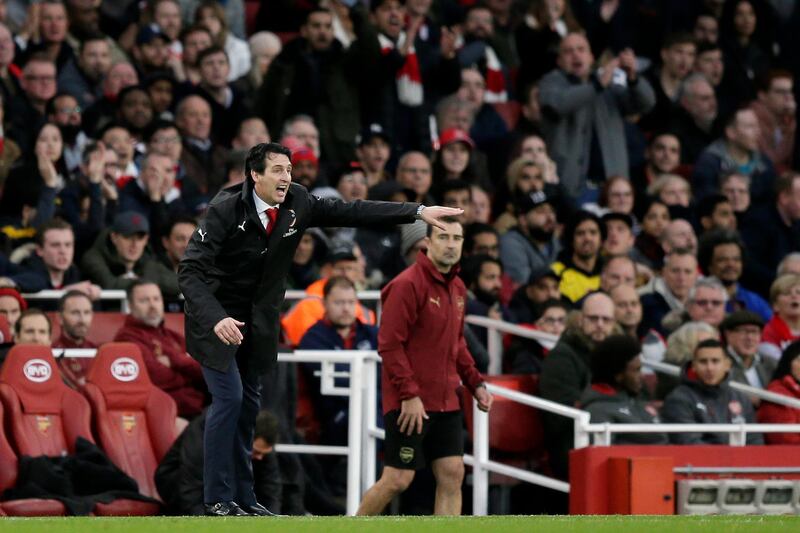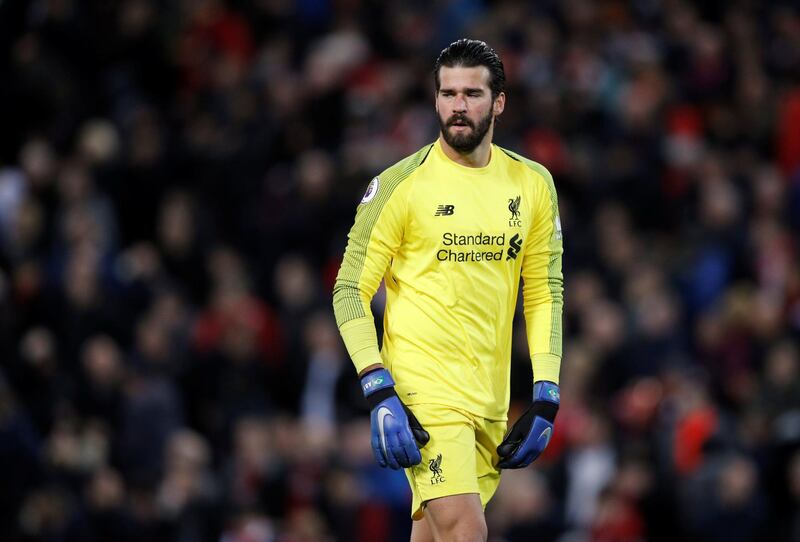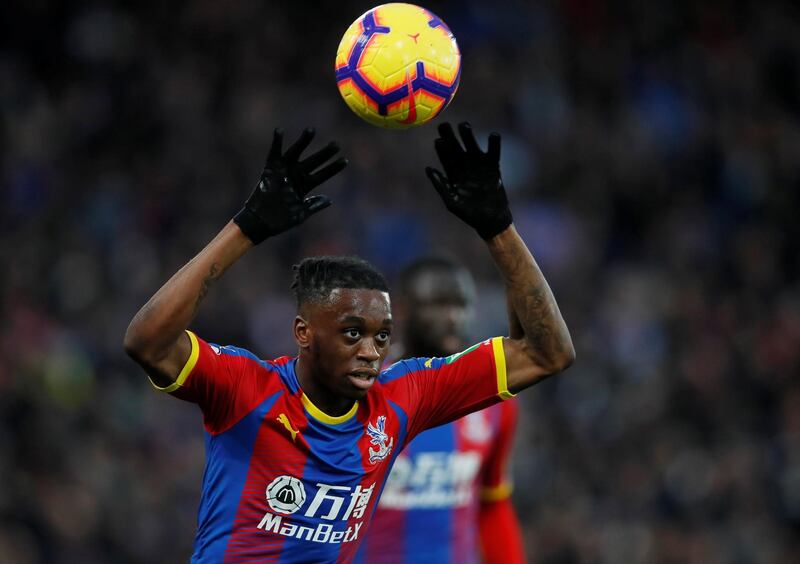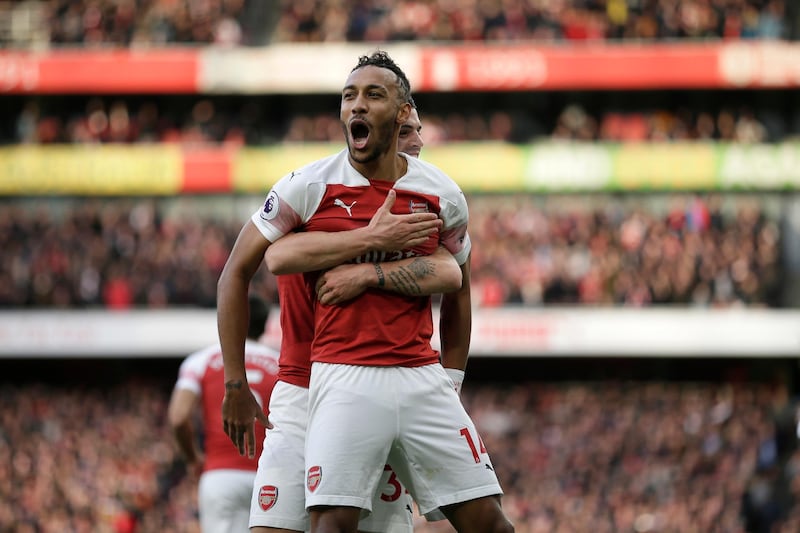The cliche is that football is a game of two halves. It may be more accurate to say that Arsenal are a team of two halves, and not merely the attacking and defensive parts of a side.
There is first-half Arsenal and the second-half side. The opening-period Arsenal are yet to record a league victory this season. The second-half specialists have won 11 of 14.
Sunday's North London derby felt symbolic, and not merely because their eventual triumph meant Arsenal leapfrogged Tottenham Hotspur to take a top-four spot few were predicting when the season started. Arsenal have taken 12 points from losing positions.
They have become experts in turning unpromising situations into positive outcomes. They finish games with such a flourish to suggest they are among the fastest, fittest teams in the league.
This was another turnaround forged by interventionist management. If the tragedy of Arsene Wenger’s departure was that he stayed too long to such an extent that his successor was charged with being his opposite, Unai Emery is doing a fine job of being the anti-Arsene.
Wenger felt too passive at times. Emery is impressively proactive.
It doesn't matter if you were at the game or if you weren't, if you've seen what happened already or if you haven't - we promise you are going to ❤️ these!
— Arsenal (@Arsenal) December 3, 2018
Goals you'll want to watch again, and again, and again, and again...
By scoring as a substitute against Spurs, Alexandre Lacazette joined an expanding group. Aaron Ramsey, Danny Welbeck and Henrikh Mkhitaryan have also begun matches on various benches and ended on the scoresheet. Pierre-Emerick Aubameyang has more four league goals as a replacement. Ramsey’s two assists were his third and fourth as a substitute; it is already a joint Premier League record.
Arsenal are the greatest proof football is a 14-man game these days.
That ability to alter a game from the dugout tends to be the mark of a managerial alchemist.
Alex Ferguson famously had scoring substitutes, their goals and comebacks eventually feeling inevitable to Manchester United and their victims alike. In Jose Mourinho’s first spell at Chelsea, he was noted for decisive, often brilliant changes.
Roberto Martinez made a host of influential substitutions in his auspicious debut year at Everton. By his final season, when his reputation on Merseyside was altogether lower, his every change seemed to backfire.
If Emery is in the heady phase where he can do no wrong, he looks a manager with the innate ability to read a game. Bequeathed an unbalanced squad, he is finding the optimum time to use particular players.
SCENES! 😆
— Arsenal (@Arsenal) December 2, 2018
Here's how the boys celebrated winning the derby - but what about you?
Let us know which GIF best describes your mood at full-time 😃 pic.twitter.com/KvGA8xCqFp
For sticking with us when we needed you most, for the electric atmosphere you created throughout, for the noise you made after all our goals, and for being such brilliant supporters of our club, @UnaiEmery_ would like to say... pic.twitter.com/sPSUpF8k3V
— Arsenal (@Arsenal) December 2, 2018
Having begun with 3-4-2-1 against Tottenham, a half-time double change permitted him to pair Lacazette and Aubameyang as strikers in a 3-4-1-2. He ended with a back four.
That capacity for inventive, agile thinking is required. The sense is that Tottenham were out-Tottenhamed on Sunday. Arsenal made the Spurs-style fast start.
While Mauricio Pochettino has become increasingly adept at altering formations to confound his counterparts, this time Emery found a shape that gave him an advantage. Pochettino’s diamond midfield had worked brilliantly against Chelsea, but not against other capital rivals.
Some of Spurs’ success in recent years has come from outperforming more favoured teams. This time, Arsenal gave them a dose of their own medicine.
Inspired management can camouflage weaknesses and Arsenal have quite a few. They have the joint fewest clean sheets in the division.
Logically, even the most spirited side with the most astute substitutions cannot continue turning defeats and draws into wins forever. Surely Aubameyang, the first player since 2007 to score with 10 consecutive shots on target in the Premier League, will be denied by goalkeepers at some stage.
Auba has become the first player since October 2007 to score with 10 consecutive shots on target in the @PremierLeague 🔥
— Arsenal (@Arsenal) December 3, 2018
RESPECT, @Aubameyang7 👏 pic.twitter.com/XPM7e9h84S
The shadow of Mesut Ozil, supposedly sidelined by back spasms on Sunday, lingers. Emery’s inheritance was decidedly mixed.
But for now, Arsenal can savour a perception-changing reign. The faultlines in their squad meant they were isolated in sixth last season and there was the temptation to assume a transitional year could have an identical finish.
Not now. If decay and decline were themes of Wenger’s final 16 months, Emery’s first few have been notable for revival and rejuvenation.
An injection of ideas has changed games and a club’s fortunes alike.
Richard Jolly's Premier League team of the week

















